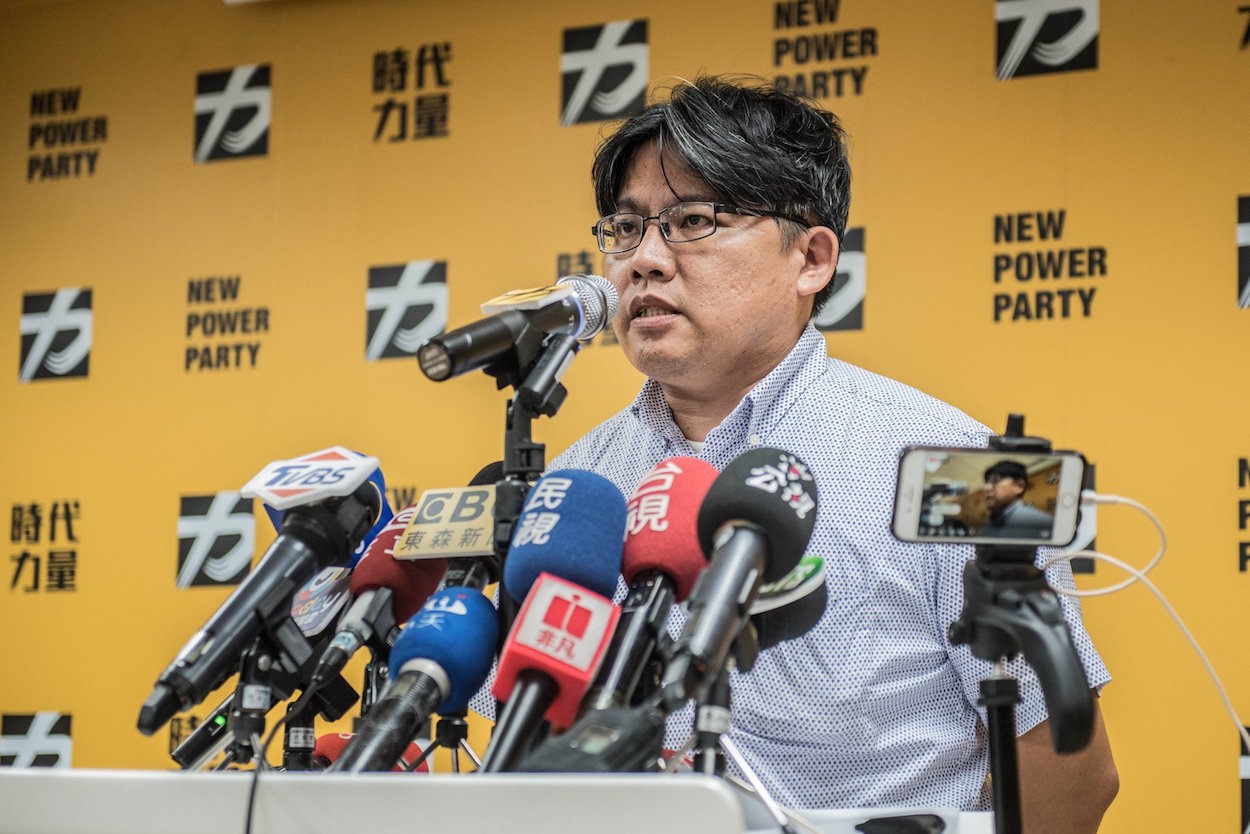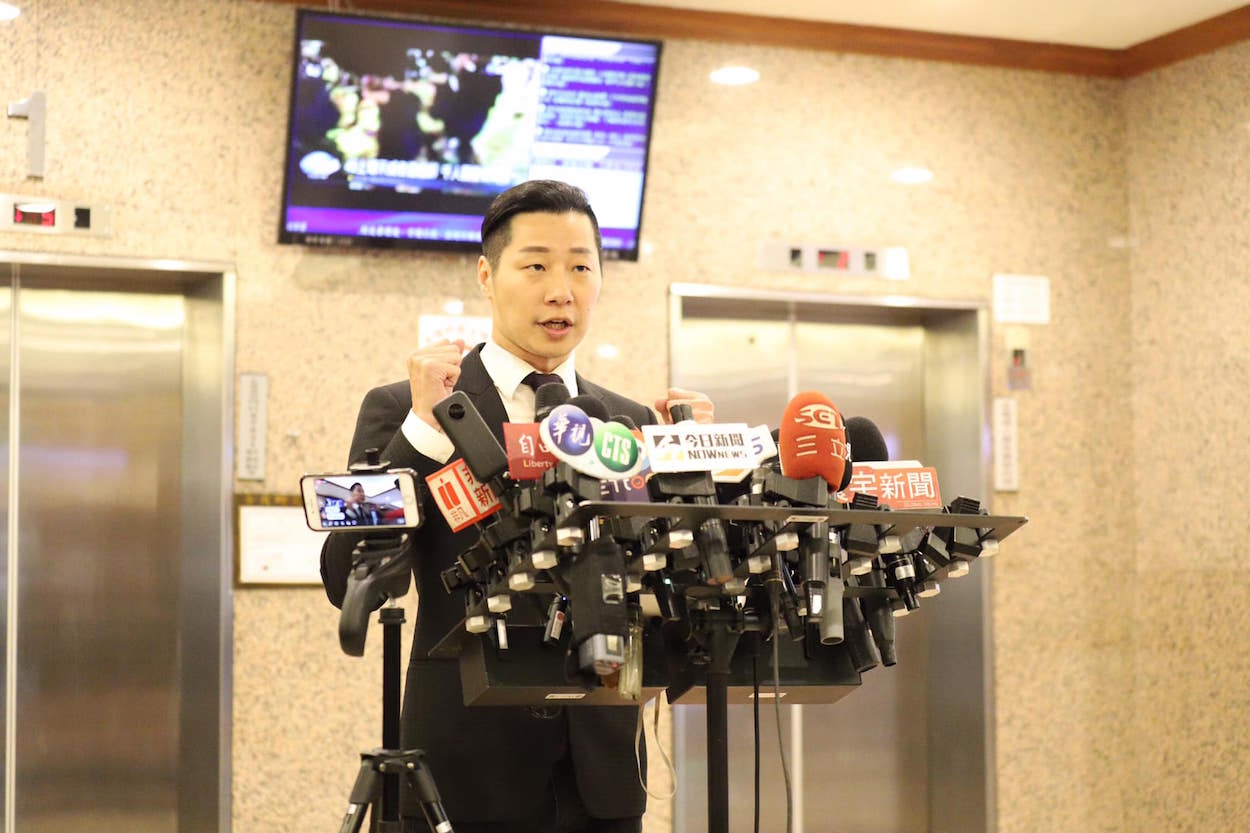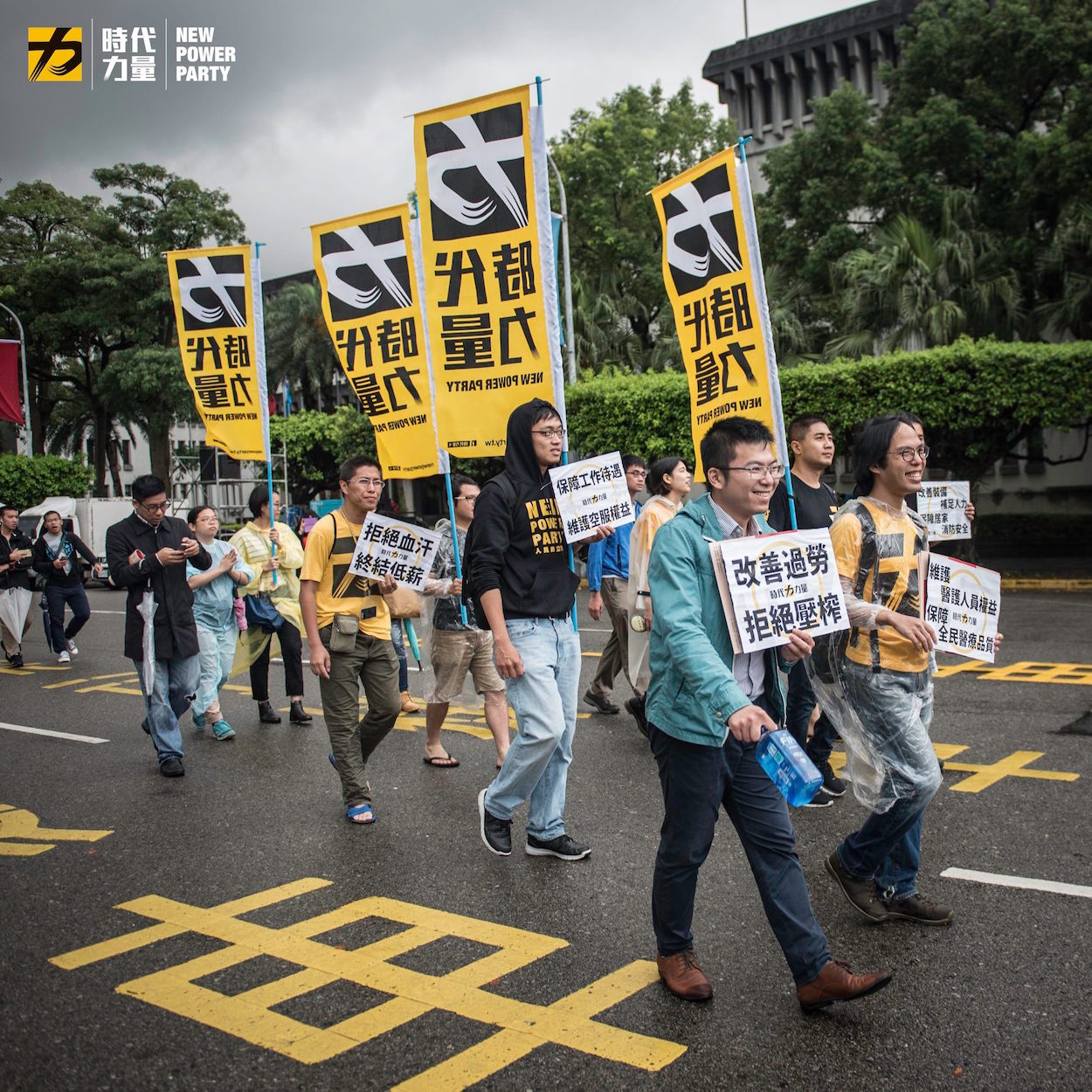by Brian Hioe
語言:
English
Photo Credit: Handy Chiu/Facebook
HANDY CHIU surprised today by announcing his resignation as chair of the NPP at a press conference held around 1 PM today. The announcement came with little advance warning, taking many by surprise.
As his reasons for resigning, Chiu cited the corruption scandal involving NPP legislator Kawlo Iyun—which led to her removal as a legislator—and his inability to resolve the dilemma’s faced by the NPP in countering Chinese influence over Taiwan or pushing for a third party able to balance both the DPP and KMT, particularly following the withdrawal from the party of former NPP legislator Freddy Lim.
 Handy Chiu. Photo credit: Handy Chiu/Facebook
Handy Chiu. Photo credit: Handy Chiu/Facebook
It is unclear who will replace Chiu. Chiu became chair of the NPP after Huang Kuo-chang, the party’s first chair, decided not to run again for NPP chair. Chiu became NPP chair at a time in which the NPP faced increasing factionalism between Huang and Freddy Lim, but in which the growth of the party in Hsinchu, as reflected in the results of 2018 nine-in-one elections, was better than with any other area in Taiwan. Despite having been unsuccessful for his run for legislature in 2016 in Hsinchu, Chiu headed up the campaign strategy of the NPP in Hsinchu, and the NPP’s successes in Hsinchu led to increased clout for Chiu and the party’s Hsinchu branch, resulting in his election victory.
In a press conference held at 2 PM, shortly after Chiu’s announcement, Freddy Lim denied that Chiu’s departure would lead to his returning to the NPP when questioned about the possibility by press, stating that he had already made independent arrangements for his reelection bid as legislator of the Zhongzheng-Wanhua area of Taipei and he would continue with this. While Lim did not deny that he remains close to many members of the NPP, Lim did not touch on the fact that a new Internet-based group made by Lim, the Chang group (昶社團), has as its moderators core members of the NPP, including the NPP’s central party committee, that he is still slated to tour America with prominent members of the NPP, such as Kaohsiung city councilor Huang Jie, and that he has remained supportive of NPP members running in Taipei, such as Chen Yu-fan, who is running in the Songshan-Xinyi district of Taipei.
Lim did not answer questions as to who he thought would become the NPP’s next chair, including whether Hung Tzu-yung would become the NPP’s next chair. Hung was closely aligned with Lim until his withdrawal from the party and who Lim had approached about also withdrawing. Lim also brushed off speculation about whether Huang Kuo-chang would, in the end, run for party chair again.
Although Chiu primarily cited taking responsibility for Kawlo Iyun’s removal as a legislator and Lim’s withdrawal from the party as his reasons for resigning, it has generally been understood that Chiu’s resignation is probably more due to the latter event. After Lim withdrew from the party over the apparent inability of the NPP to decide whether it would support Tsai Ing-wen in her reelection bid, Chiu hurriedly claimed that the NPP had already decided to support Tsai and so Lim’s departure was premature, perhaps with the hopes of luring Lim back to the party.
 Freddy Lim announcing his resignation. Photo credit: Freddy Lim/Facebook
Freddy Lim announcing his resignation. Photo credit: Freddy Lim/Facebook
This event led to increasing perceptions that Chiu is a weak leader, as well as calls for Chiu’s resignation as chair. Individuals within the party who had previously critical of the party’s inability to decide whether to support Tsai or not, such as former Sunflower Movement activist and city councilor candidate Wu Zheng, did not call for Chiu’s resignation, but clearly did attribute some level of blame to Chiu.
As such, it is not impossible that the NPP will be able to replace Chiu with a stronger, more able chair, though some have also questioned whether Chiu’s move was premature. After all, in the wake of Chiu’s resignation. Namely, the media narrative that the NPP is a party in the process of collapse following the removal of one of its original five legislators and the departure of another, will only become stronger going forward.
It is also likely that Chiu’s resignation is linked to panic regarding the formation of Ko Wen-je’s Taiwan People’s Party (TPP), with the view that the TPP will prove divisive of the pan-Green vote. The NPP has long since internalized the view that many of its supporters are not actually supporters of the party because of its stronger stance on cross-strait issues compared to other political parties, as a “Third Force” political party that emerged in the wake of the 2014 Sunflower Movement. Rather, the NPP has long struggled with the apparent fact that many of its voters are individuals simply hoping for an alternative to both the pan-Blue and pan-Green camps alike, whether that be the NPP or Ko Wen-je, sometimes as primarily voting based on economic rationality.
Indeed, one wonders whether Chiu’s actions reflect premature panic by the NPP vis-a-vis the TPP, which includes both former DPP and KMT members, but which skews heavily toward the pan-Blue camp. Despite that the TPP’s party charter allows members to be part of more than one political party, this is unlikely to take place in practice, with TPP members more often withdrawing from their original party before becoming TPP members. And, with the pan-Blue leanings of the party becoming increasingly clear, although some members of the NPP backed Ko in his reelection bid as Taipei mayor, such members generally have not supported the notion of Ko running for president against Tsai Ing-wen. Nevertheless, the NPP’s support base may simply not be on the same page as the party’s leading figures themselves.
 Photo credit: New Power Party/Facebook
Photo credit: New Power Party/Facebook
The future of the NPP looks increasingly uncertain, then. The pan-Green camp seems on its way to coalescing in the wake of Lim’s departure from the NPP, and all indications are that, as apparently guided by DPP deputy secretary-general and former Sunflower Movement leader Lin Fei-fan, the DPP will work with Third Force parties inclusive of at least the NPP and Taiwan Statebuilding Party in 2020 elections.
Yet the NPP’s future is now strongly linked to the question of whether the party’s next leader proves a stronger leader than Chiu, whether the momentum of the party’s other key figures is sufficient to keep the party going—particularly regarding the younger politicians in the party who were among those to force the issue of whether the party would support Tsai in 2020 elections or not—and whether the NPP can combat the narrative that it is a party in the process of internal dissolution.

